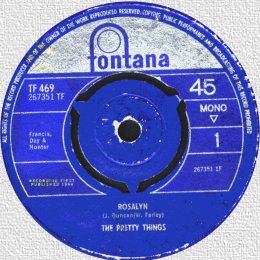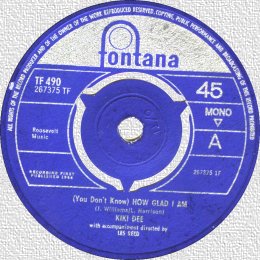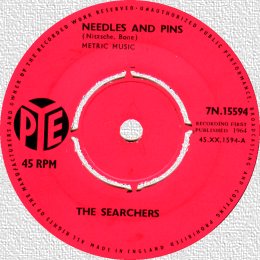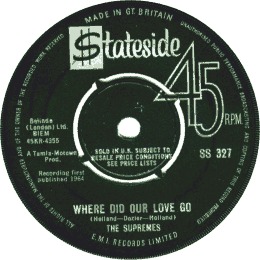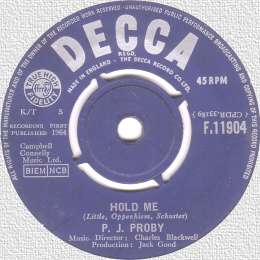
|
1964 |
|
|
| James Marcus Smith born November 6th 1938 in Houston, Texas | |||
|
P.J. Proby burst on to the UK music scene with this Jack Good produced ballad. The success of this record seemed out of step with a market that was becoming dominated by the steady growth of Merseyside inspired beat groups. James Marcus Smith had previously sung in the USA as 'Jett Powers' and 'Orville Wood', but his output under these names had met with little success. Until meeting legendary British producer, Jack Good, his greatest show business successes had been in making demos and writing songs. He'd previously written 'Clown Shoes' for Johnny Burnette. |
|||
|
Perhaps P.J. Proby's early appeal was as much to do with his unique physical appearance as anything else. With a short ponytail, tied back with a bow, frilly shirts and tight trousers he could not fail to be noticed. The singer courted publicity- typified by an incident where his trousers split on stage- but it was his rich, deep and trembling vocal style that underpinned his popularity in the UK. He had a series of hits with numbers that could be described as 'MOR' had it not been for his inimitable interpretations. By the end of 1964, P.J. Proby had transferred for contractual reasons to 'Liberty'- an American label- though much of his output still benefited from British production. Sadly, this never helped his record sales at home and apart from one #23 hit in 1967 his output in the states has never been highly rated. The great appreciation shown by British and European fans encouraged the singer to make his home in England. He has remained faithful to his adopted home, even during several years of comparative obscurity during the early 1980s. P.J. Proby is still in good voice and well worth seeking out, regularly touring and recording- though perhaps the torn trousers have now been left behind. Fans may care to visit http://groups.yahoo.com/group/proby/ |
|||

